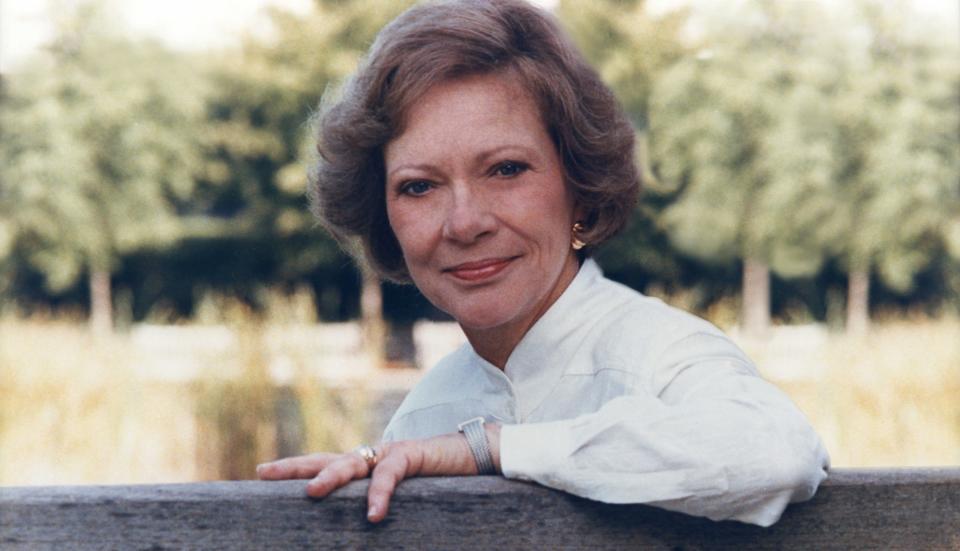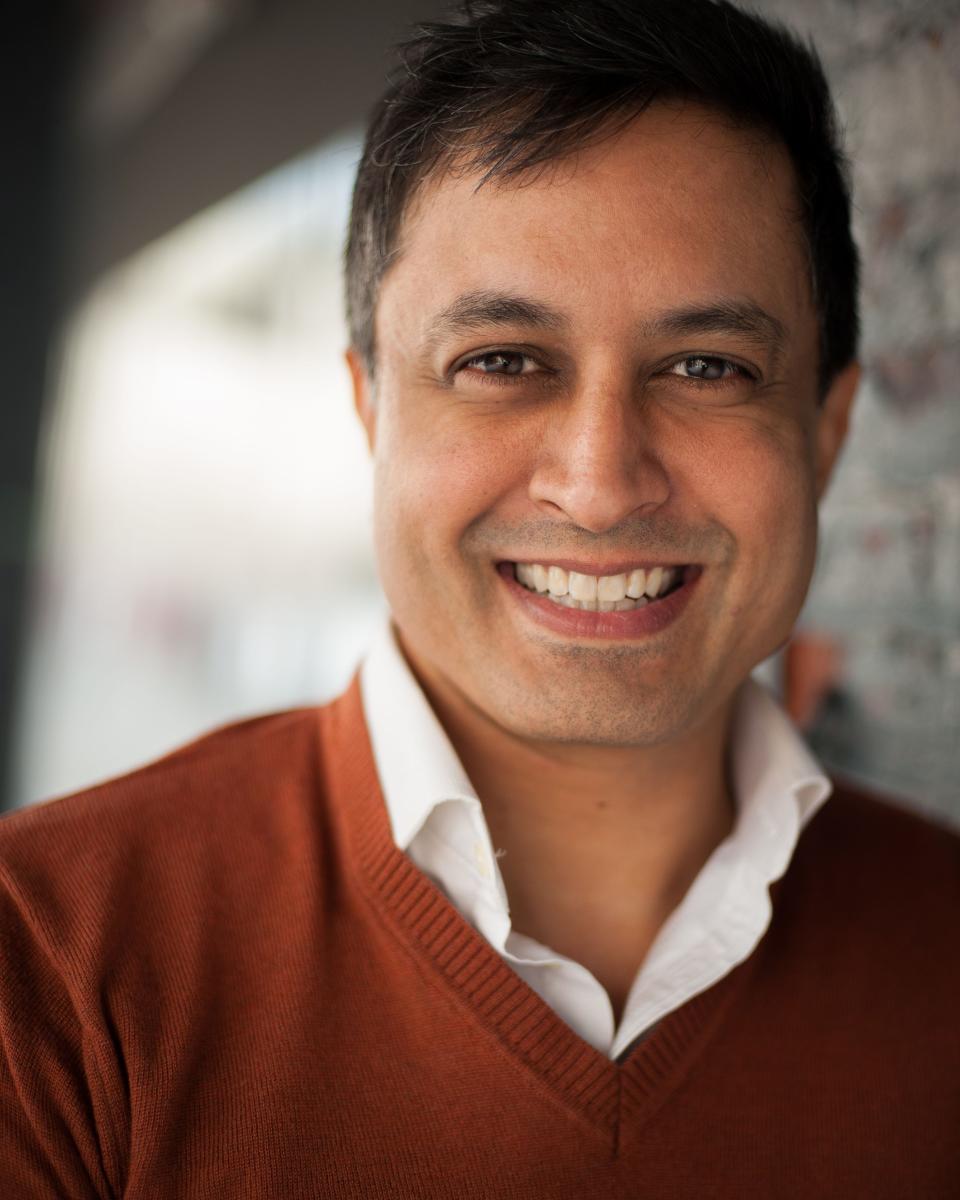Rosalynn Carter advocated for caregivers before the term was widely used. I'm so grateful.
- Oops!Something went wrong.Please try again later.
- Oops!Something went wrong.Please try again later.
It started with a story.
When asked about her lifelong commitment to improving mental health services and support for caregivers, former first lady Rosalynn Carter would share her experience on the campaign trail: Exhausted caregivers urgently reaching to grab her hand. Families pleading for resources. Americans bravely sharing their stories of hurdles and heartache.
From these anecdotes emerge a legacy marked by courage and compassion. A woman ahead of her time, fighting for caregivers before the term was even widely used.
As I join people around the world in mourning the loss of Mrs. Carter and reflecting on her life of service, I find myself thinking about the person on the other side of all her handshakes: the caregiver whose loved one was struggling with mental illness, who had no support, no resources, and who was finally seen through Mrs. Carter’s empathetic presence. Mental illness is still stigmatized today – imagine how taboo the topic was in 1976 on a presidential campaign trail.
No mere footnote as a first lady: From mental health to Camp David to the campaign trail, Rosalynn Carter made her mark
America's 53 million caregivers need support
Among the countless stories she encountered, Mrs. Carter would recount one in particular that stood out, helping compel her to greater action. In that person, whose story inspired a first lady like no other, I see my own family.
Like many of America’s 53 million caregivers, our experience supporting my brother with schizophrenia has been an arduous journey. For more than two decades, we have traveled this journey alone, from the shock of early symptoms to the angst of an uncertain diagnosis to the heavy load of navigating a health care system ill-prepared for our needs.
I’m still struck by the yawning gap between the value caregivers deliver and the scant support they receive.
Opinion alerts: Get columns from your favorite columnists + expert analysis on top issues, delivered straight to your device through the USA TODAY app. Don't have the app? Download it for free from your app store.
After leaving my job in corporate America four years ago to become a full-time entrepreneur, caregiver and advocate, I quickly discovered the Rosalynn Carter Institute for Caregivers as a vibrant resource in an otherwise desolate landscape of caregiver support.
I participated in a series of workshops that RCI facilitated aimed at helping streamline the diverse experiences of caregiving into nine distinct stages.
Our hope is that this new approach – which moves beyond diagnosis-driven categorization to focus instead on the types of support needed at each phase of the experience – will inform policy and practice for health practitioners, employers, policymakers and organizations serving caregiver needs.

Rosalynn Carter understood that caregiving is work
Reflected in this strategy is Mrs. Carter’s understanding that caregiving is work. In fact, it is the hardest job I have ever had.
With a more accurate and nuanced representation of care experiences, we can further advance a public health approach to caregiving that meets caregivers where they are, designs more effective policies and supports, and makes it easier for them to access benefits, services and support. Because when caregivers are properly supported, they drive positive outcomes for families, communities, the economy and the health care system.
Can someone outlive their hospice stay? Rosalynn and Jimmy Carter bring needed attention to hospice care – and questions
Simply put, caregivers, like workers in any field, need appropriate training and support to ensure that their own health and well-being is protected.
By recognizing caregiving as an essential role that most people will experience at some point in their lives, we can improve policies and implement systems-level change. In addition, workplaces that are supportive of caregivers’ needs can boost productivity and retain employees who have mastered the art of problem-solving and resilience.
We can reduce stress, depression and caregiver burnout by lifting up our community of caregivers, just as Mrs. Carter called on us to do – a call inspired by the courageous stories of caregivers she encountered years ago.

Mitul Desai is a family caregiver and co-founder of The Care Hack.
You can read diverse opinions from our Board of Contributors and other writers on the Opinion front page, on Twitter @usatodayopinion and in our daily Opinion newsletter.
This article originally appeared on USA TODAY: Rosalynn Carter Institute for Caregivers gave me much needed support

